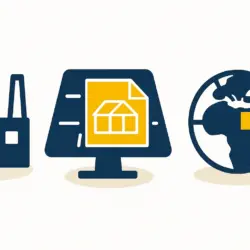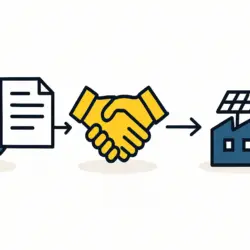Uganda has secured a $12.5 million financing package from the World Bank to support its Solar Energy Transformation for Universal Access (SET4UA) project. The funding—comprising a $10 million grant from the Green Climate Fund and $2.5 million from the Energy Sector Management Assistance Program (ESMAP)—aims to provide reliable and sustainable electricity to approximately 1.4 million people across Uganda.
Expanding Solar Energy Access in Uganda
The goal of the SET4UA project is to bring reliable and sustainable electricity to an estimated 1.4 million people. This initiative will focus on expanding the use of solar energy to reach areas that currently lack access to the national grid or have limited service.
“The Solar Energy Transformation for Universal Access project is a significant step in our mission to ensure that all Ugandans have access to clean and affordable energy,” said Keith Hansen, World Bank Country Director for Uganda, Tanzania, Malawi, and Zambia.
Scaling Up Solar Solutions Across Uganda
The SET4UA project will roll out several key solar energy solutions to increase electricity access. It will support the installation of solar mini-grids in off-grid areas, providing electricity to communities that are not connected to the national grid. These mini-grids will be particularly important for rural areas where extending the national grid is expensive and challenging.
The project will also promote the use of standalone solar home systems. These systems provide individual households with a reliable source of electricity for lighting, phone charging, and powering small appliances. The initiative will further support the distribution of solar-powered irrigation pumps, which will help farmers increase their crop yields and improve food security. For more insights on this initiative, check out Uganda Solar Pump Program.
Financing will also extend to the development of solar-powered cold storage facilities. These facilities will help reduce post-harvest losses for farmers by providing a reliable way to store perishable goods. This is expected to have a significant impact on the agricultural sector, which is a major part of Uganda’s economy.
Boosting Climate Resilience Through Solar Energy
Uganda is highly vulnerable to the impacts of climate change, including rising temperatures and an increasing frequency of extreme weather events. The SET4UA project is designed to address these challenges by promoting renewable energy solutions that reduce greenhouse gas emissions and enhance climate resilience.
“The SET4UA project is not just about providing electricity; it’s about building resilience to climate change and supporting sustainable development,” said Denis Nikitin, World Bank Task Team Leader for the project. “By investing in solar energy, we are helping Uganda reduce its carbon footprint and prepare for the impacts of climate change.”
The project is expected to significantly reduce greenhouse gas emissions by replacing diesel generators and kerosene lamps with clean solar energy. It will also help reduce the pressure on Uganda’s forests, which are often cut down for firewood and charcoal. By providing alternative sources of energy, the project will contribute to the conservation of the country’s natural resources.
Economic and Social Impacts of the Project
In addition to its environmental benefits, the SET4UA project is expected to significantly impact Uganda’s economy. By providing reliable electricity to businesses and households, the project will support economic growth and job creation. Access to electricity is essential for businesses to operate efficiently and for households to improve their quality of life.
The project will also have important social benefits, particularly for women and children. Access to electricity can improve educational outcomes by providing lighting for studying after dark. It can also reduce the time women spend on household chores, such as collecting firewood, allowing them more time for income-generating activities.
For further context on Uganda’s efforts in renewable energy, visit Prices of Renewable Energy Products Subsidised in Uganda.
The SET4UA project will be implemented over the next few years, with the goal of achieving universal access to electricity in Uganda by 2030. The World Bank will work closely with the Government of Uganda, private sector partners, and local communities to ensure the project’s success.
The approval of this financing package marks an important step forward in Uganda’s efforts to achieve universal access to electricity and build a more sustainable and resilient energy sector.



